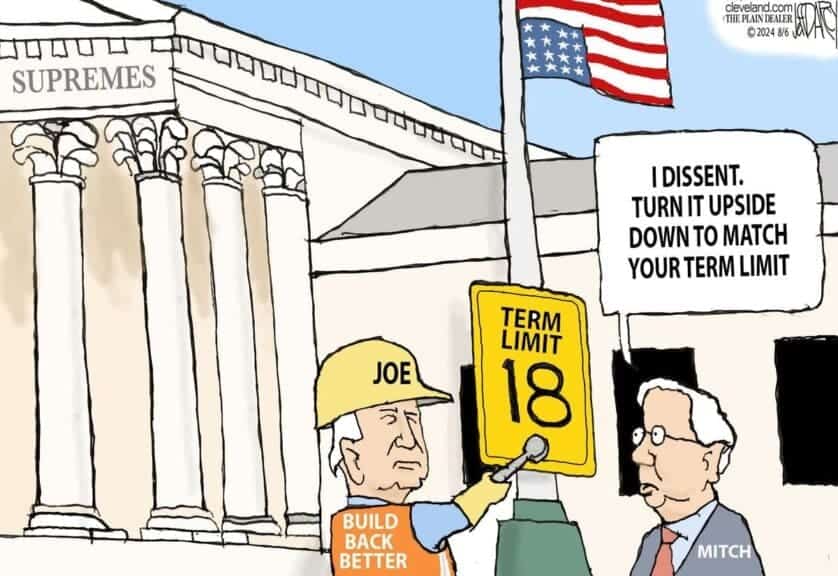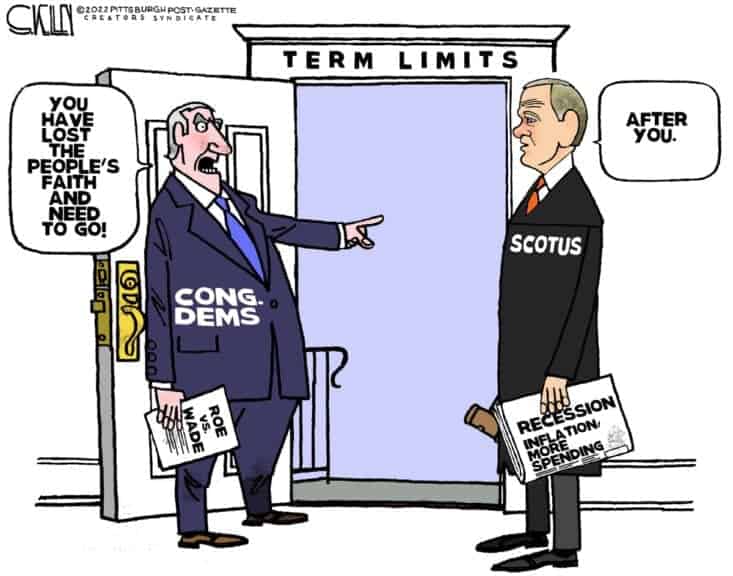Imagine this: you walk into a grocery store and grab a loaf of bread. The packaging reads “Best Before: Indefinitely.” You wouldn’t touch that bread with a ten-foot pole, right? Now, imagine Congress. A chamber full of legislators with no expiration date. The same people legislating decade after decade, marinating in the political broth of lobbyists and power. Isn’t it time to slap a “use by” sticker on that?
POTUS gets two four-year terms—no exceptions. It’s a hard stop to ensure fresh leadership and avoid one person monopolizing power. But for Congress? It’s a free-for-all. Representatives and senators can stick around for 20, 30, even 40 years if voters keep sending them back. Why the disparity? Let’s dive into the stew of arguments, counter arguments, and a dollop of common sense to figure out whether term limits for Congress are overdue—or just overhyped.
A Politician Shouldn’t Be Forever
Let’s face it: Congress is like that Netflix series that started great but went on too long. What begins as fresh energy and ambitious ideas often devolves into stale plots, predictable characters, and filler episodes. Term limits could be the cancellation notice Congress desperately needs.

- The Fossilization of Leadership
A Congress where the average age rivals the Rolling Stones. The current Congress isn’t just seasoned—it’s marinated, baked, and overcooked. While experience is valuable, too much tenure can turn even the most earnest politicians into stagnant relics. Term limits could force a regular infusion of fresh perspectives, younger leaders, and new ideas. For example, look at Strom Thurmond, who served a jaw-dropping 48 years in the Senate, retiring at 100 years old. It’s safe to say that by the end, his worldview wasn’t exactly in sync with the Snapchat generation. - Power Begets Complacency
Long-tenured legislators can morph into political aristocrats, wielding outsized influence and entrenching themselves in the system. Their extended tenure often strengthens ties with lobbyists rather than constituents. Term limits could disrupt the cycle of cozy relationships with special interests and reignite the focus on public service over self-preservation. Think of term limits as the office fire drill. Without it, people get a little too comfortable sitting in their chairs.
If It Ain’t Broke, Don’t Fix It?

Of course, not everyone thinks term limits are the magic wand to cure congressional dysfunction. Some argue that experienced legislators are like fine wine—they improve with age. But is that always true?
- Loss of Expertise
Critics argue that term limits would usher out seasoned lawmakers just when they’ve mastered the art of governance. Sure, there’s a learning curve in Congress, but is the idea of “expertise” being used as a justification for career-long occupancy? Wouldn’t regular turnover encourage more agile thinkers who adapt quickly? For example, would you keep the same CEO for 50 years, assuming they’re the only ones capable of steering the ship? Or would you bring in fresh leadership to keep up with the times? Governance isn’t any different. - Voter Choice: A Sacrosanct Right
Opponents often argue that elections are the ultimate term limits. If voters want change, they can simply vote incumbents out. But here’s the thing: incumbents have a built-in advantage, from name recognition to donor networks. The system is rigged in favor of those already seated at the table. It’s like playing Monopoly with someone who already owns Boardwalk, Park Place, and half the railroads. Sure, you could win, but the odds are stacked against you.
What If We Flipped the Script?
Let’s step away from the usual arguments for a moment and consider some unconventional takes on why term limits might just save democracy—or at least make it more interesting.
- The Netflix Model of Politics
Imagine Congress as a streaming service. Every legislator gets a set number of “seasons” to prove their worth. Once their time is up, they exit gracefully, leaving room for fresh talent. It keeps the plot unpredictable and the audience (read: voters) engaged. A representative is forced to make bold moves in their limited time instead of coasting on the promise of “next term.” Term limits could transform Congress into a high-stakes drama instead of a never-ending soap opera. - The Retirement Renaissance
Term limits could help politicians rediscover life outside the Capitol. They could write memoirs, teach civics, or even (gasp) live among the people they once represented. A post-Congress life could enrich the political ecosystem by turning former legislators into mentors and thought leaders rather than lingering power players. - The Rotation of Power
Term limits could create a rotational system where members of Congress return to private life after serving, bringing their firsthand political experience into the real world. This rotation could foster better public-private collaboration and reduce the career-politician stigma. Think of it as political cross-training: serve, step aside, and then bring fresh insights from the outside world back into the system.
Lessons from the States
The U.S. isn’t entirely uncharted territory when it comes to term limits. States like California and Michigan have implemented term limits for their legislatures. The results? A mixed bag.
- The Good: In California, term limits have encouraged diversity, with more women and minorities entering the legislature.
- The Bad: Critics argue that term limits in Michigan have led to inexperienced legislators overly reliant on lobbyists.
The takeaway? Term limits aren’t a ‘cure-all’. Like any political reform, they need to be part of a broader strategy that includes campaign finance reform, voter education, and structural changes to ensure a balanced and effective government.
A Shelf Life for Democracy?
Should there be term limits for Congress? Absolutely—but not without safeguards. Term limits could reinvigorate a system bogged down by career politicians and the inertia of incumbency. They could level the playing field, reduce the influence of special interests, and ensure that Congress remains a dynamic and evolving institution.
But they’re not a silver bullet. Without addressing the deeper issues of gerrymandering, campaign finance, and voter access, term limits alone won’t fix what’s broken. They’re a start—a much-needed jolt to a system that’s been running on autopilot for too long.
So, the next time you watch Congress debating for hours about nothing in particular, ask yourself: Would this be better if some of these folks had an expiration date? My guess? The answer might just be a resounding ‘yes’.




